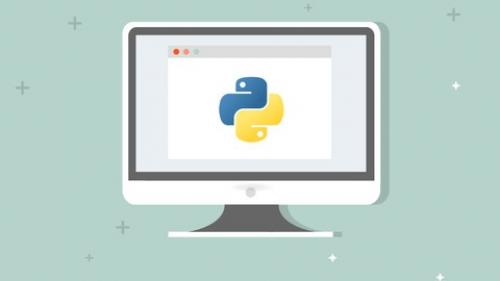Udemy - The Fundamentals of Python 3 Programming - Update 2020
A Practical and Robust Introduction to Python Programming
Description
Course content
- Introduction
- Introduction to the course
- Module 1-1 - Compilation vs. Interpretation
- Compilation vs. Interpretation
- Module 1- 2 - All about Python
- Python is a widely-used, interpreted, object-oriented language
- Module 1- 3 - Writing your first program
- Installing and start working with Python 3
- Module 1 - 4 - Setting up your Programming Environment
- How to spoil and fix your code in your Python shell
- Module 1 Quiz
- Module 2 - 1 - What is a function
- Data types, operators, and variables
- Module 2 - 2 - The print() function
- Print function, positional and keyword arguments
- Module 2 - 3 - Integers and floating-point numbers
- Literals: octal and hexadecimal numbers
- Module 2 - 4 - Integers vs. Floats
- How to code integers, floats,and strings
- Module 2 - 5 - Boolean values
- Boolean values and recap of the previous module
- Module 2 - 6 - Arithmetic operators
- Basic arithmetic operators
- Module 2 - 7 - Arithmetic operators in Python
- Operators bindings and priorities
- Module 2 - 8 - Using variables
- All about variables in Python
- Module 2 - 9 - Variables and shortcut operators
- Using variables and shortcut operators
- Module 2 -10 - Arithmetic operations in Python
- Performing basic calculations
- Module 2 -11 - Input function and Strings operators
- Input function, type casting and strings operators
- Module 2 - 12 - Exercise Lab
- Type conversion and coding exercises
- Module 2 quiz
- Module 3 -1 - Comparison operators
- Comparison operators and conditional execution
- Module 3 - 2 - Pseudocode and loops
- If-else sentence, pseudocode and loops
- Module 3 - 3 - Looping your code
- Conditional operators and looping your code
- Module 3 - 4 - Break and continue statements
- Break and continue statements
- Module 3 - 5 - Lists management
- Appending and inserting elements to a list
- Module 3 - 6 - Making use of the lists
- Strings elements managing
- Module 3 - 7 - Sorting and reverse lists
- How to sort and reverse lists, use of slice, in and not in operators.
- Module 3 - 8 - Arrays and data structure
- Arrays and data structure
- Module 3 quiz
- Module 4 - 1 - Defining and using functions
- Defining and using functions
- Module 4 - 2 - Parameters and arguments in functions
- Using parameters and arguments in functions
- Module 4 - 3 - Global and local variables
- Global and local variables, tuples and dictionaries
- Module 4 - 4 - Tuples and dictionaries
- How to use tuples and dictionaries in Python
- Module 4 quiz
- Module 5 - 1 - Creating and using a class
- Creating and using a class
- Module 5 - 2 - Classes and Instances
- Classes. calling methods, instances, inheritance
- Module 5 - 3 - Making use of Python modules
- Modules importing and management
- Module 5 - 4 - Modules and packages
- Creating modules and packages
- Module 5 - 5 - Your first package
- How to create your first package in Python and exception handling
- Module 5 - 6 - The try... except statement and multiple except clauses
- Multiple except clauses, the else and finally clauses
- Module 5 quiz
- Module 6 -1 - Managing files in Python
- Flat files vs. non-flat files, Python file objects
- Module 6 - 2 - Managing files, opening a stream
- Managing files, opening a stream, text and binary modes.
- Module 6 - 3 - Using Reading and writing JSON files
- Access CSV files and reading and writing JSON files
- Module 6 - 4 - Building a guessing game in Python
- All the steps to build a guessing game
- Module 6 quiz






